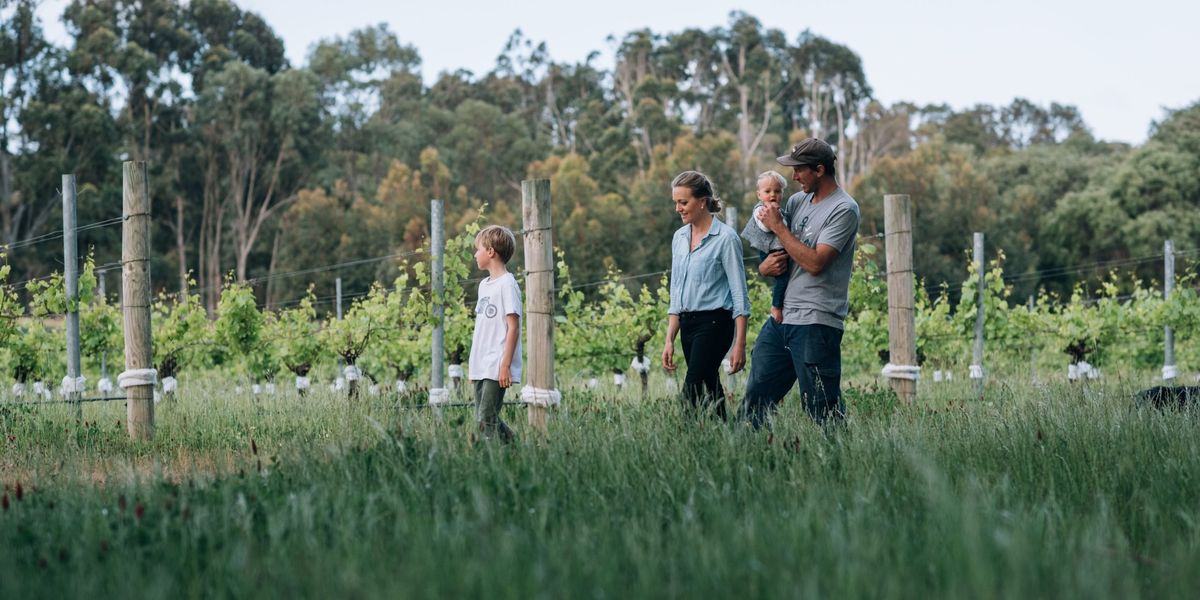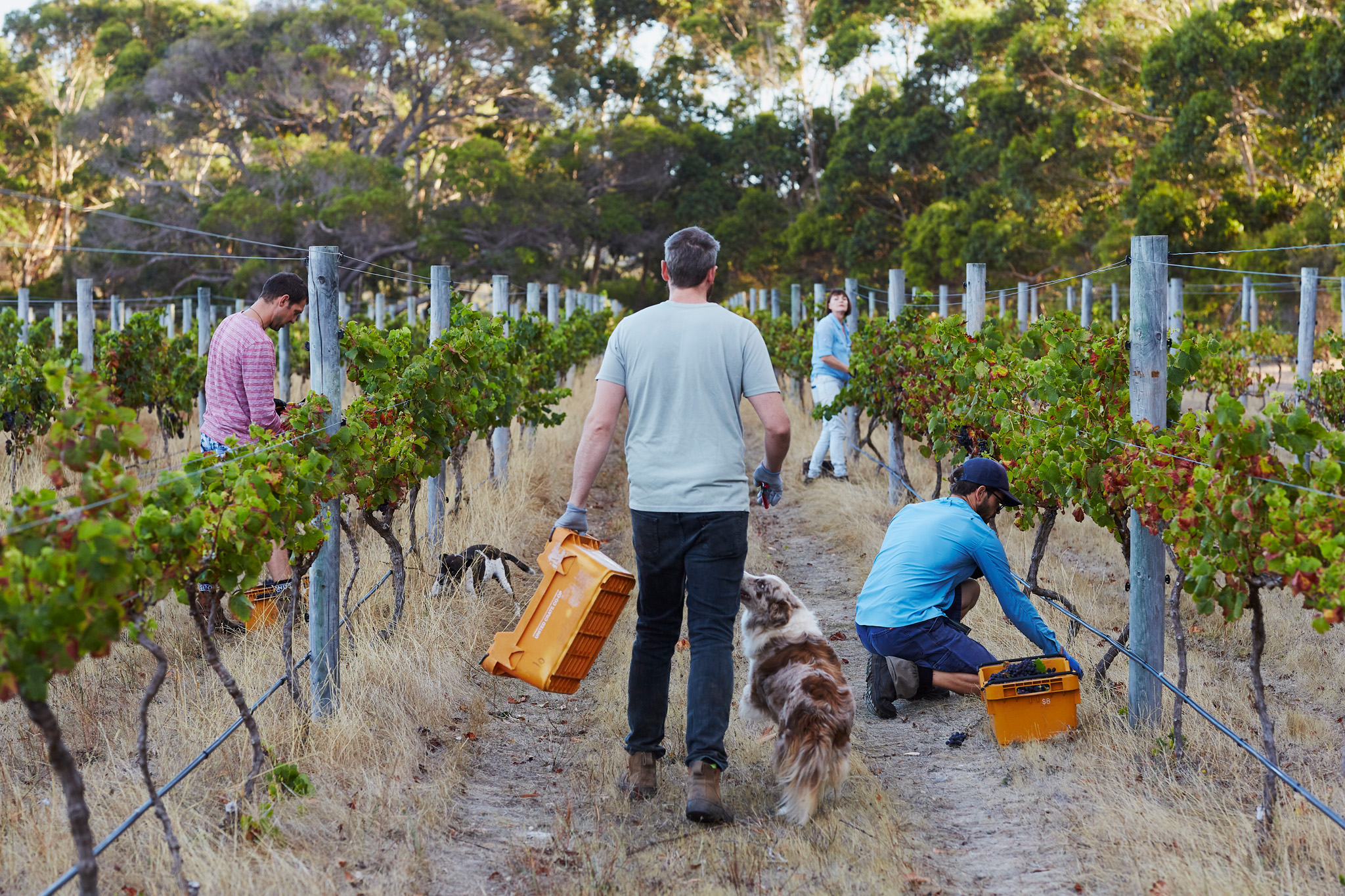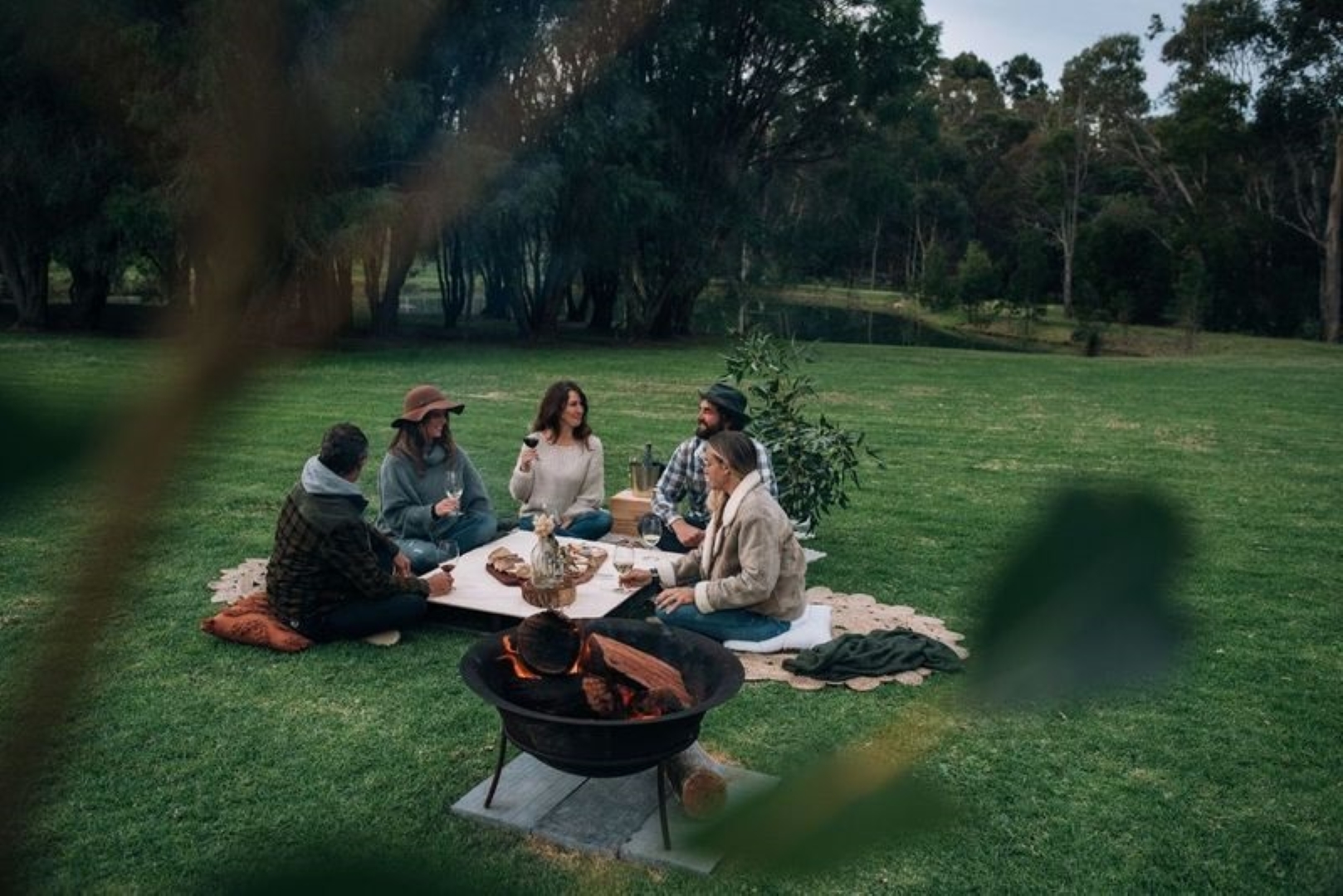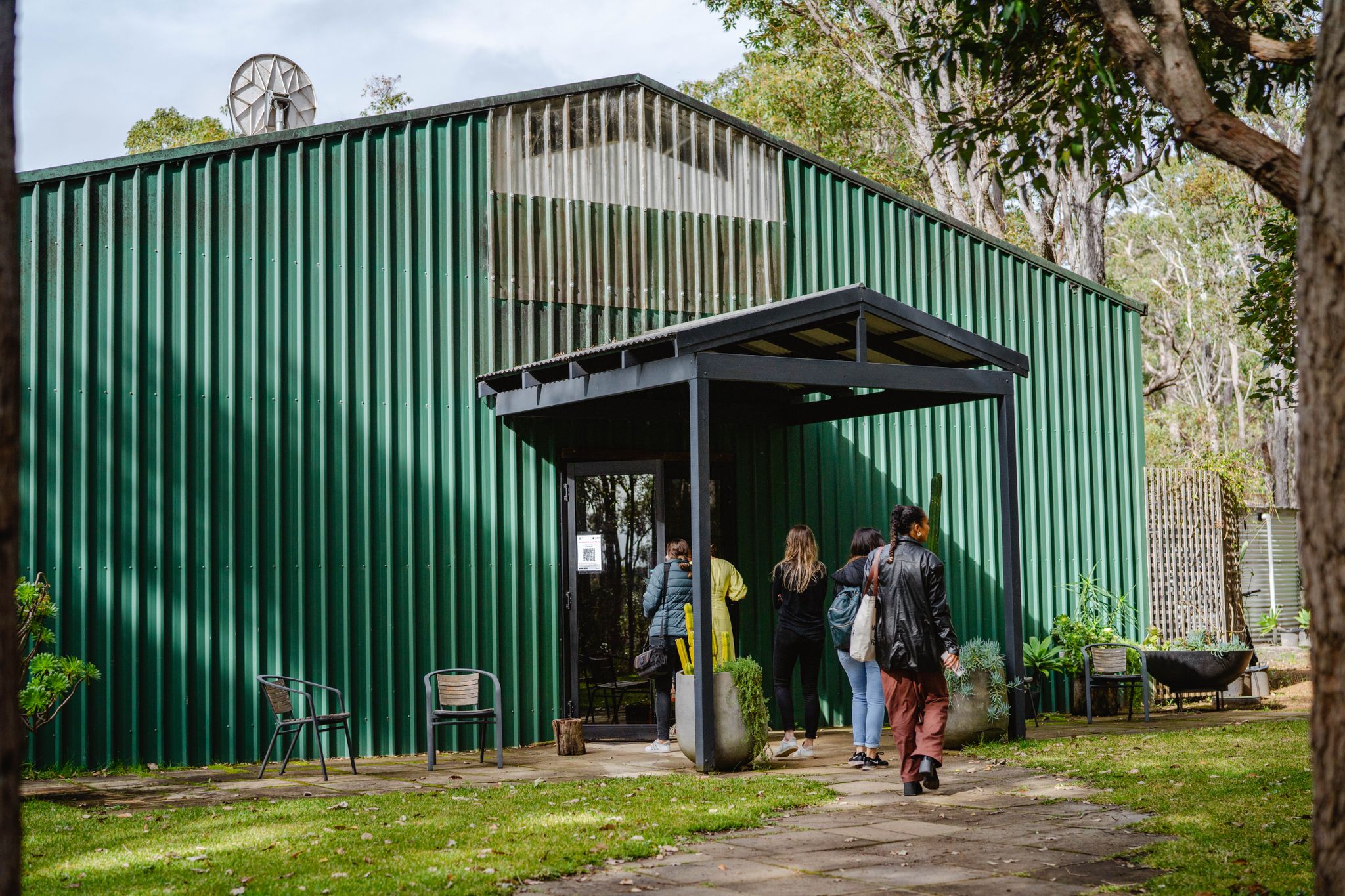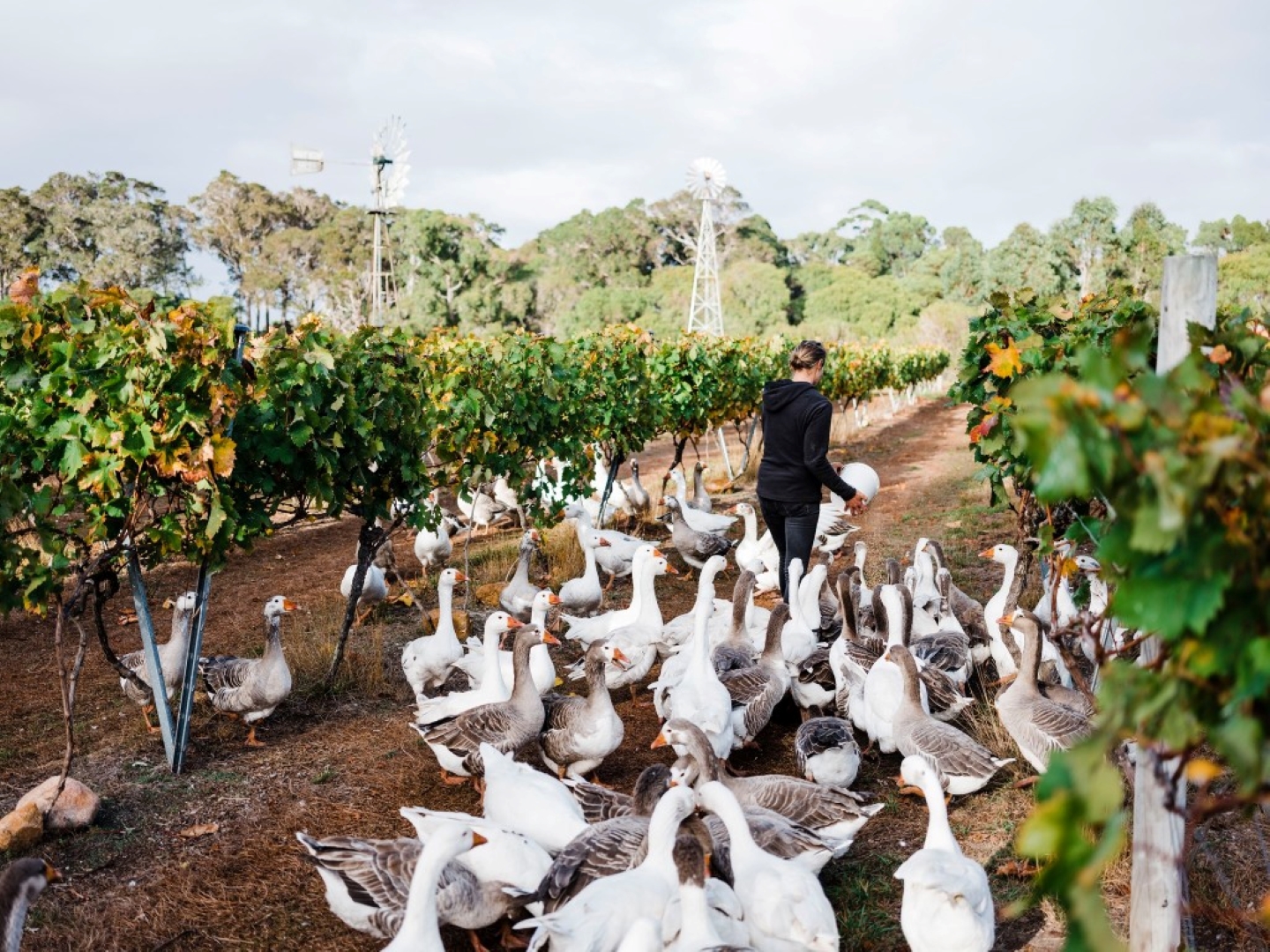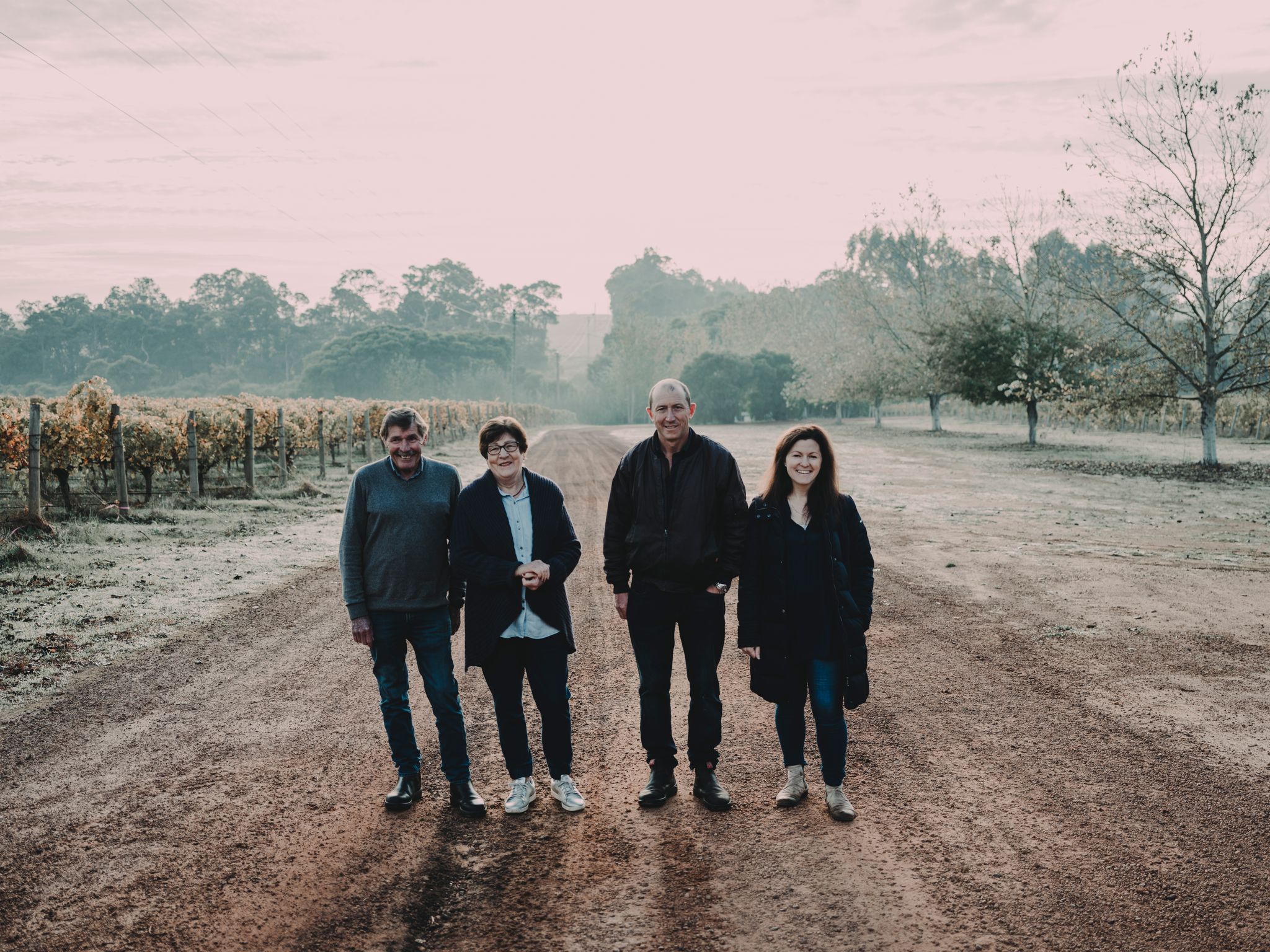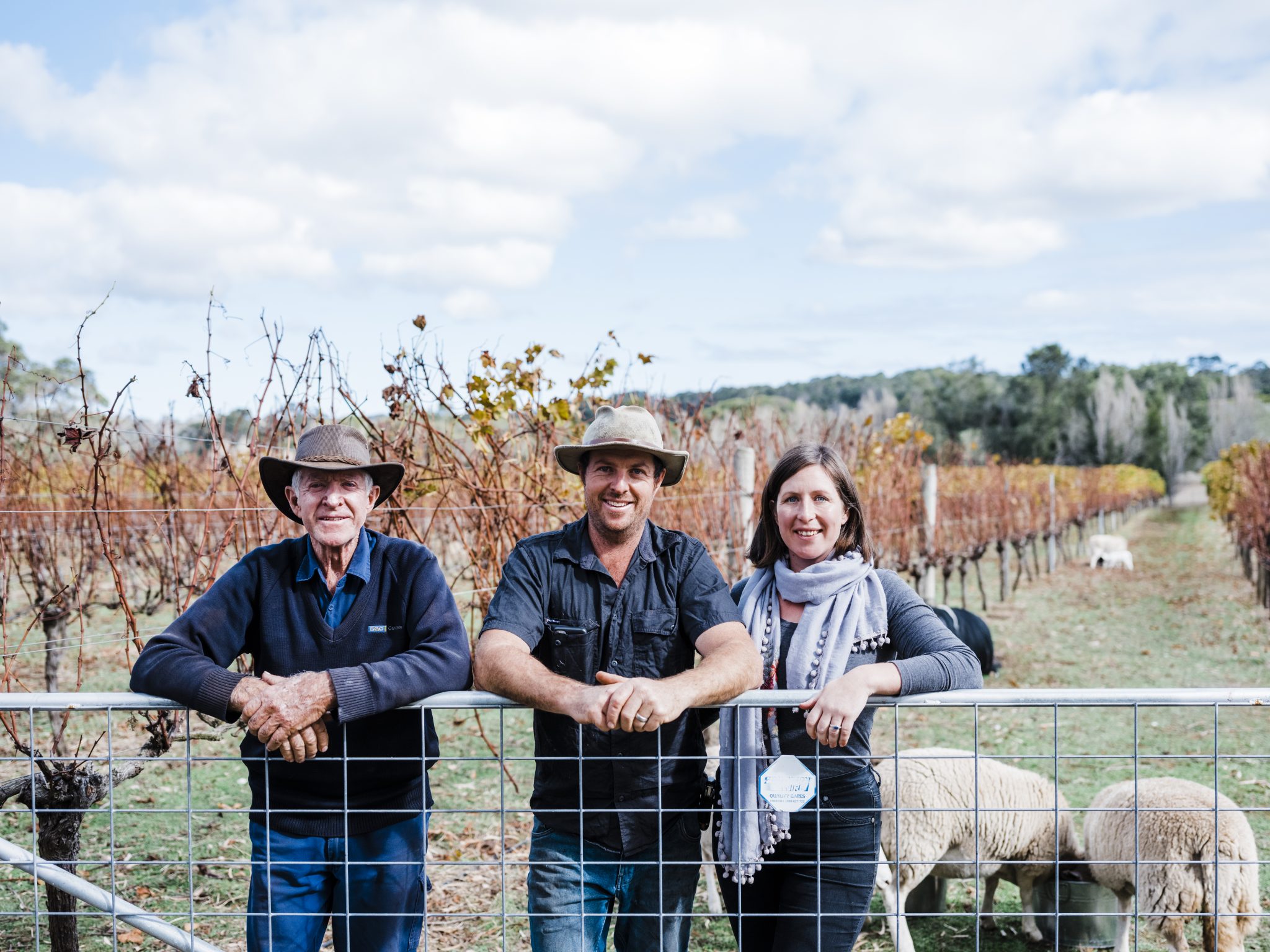Dropping in to cellar doors on Margaret River’s Small Family Wine Trail feels like dropping in on family: the side doors are always open, though you might have to give a little holler if cellar door is unattended. When you care for the wine you’re selling, there are not a lot of idle minutes left in the day to stand still.
But you won’t mind the casual approach. These wineries are as welcoming as their wines are polished.
The idea of ‘small family wineries’ no longer means boisterous table wines picked by Nonno and fermented in the shed with hanging salamis. In the Margaret River Region, this tag is synonymous with single estate wines benefitting from an almost entirely hands-on approach to a much smaller scale of production.
For the winemakers involved, this means tighter quality control and a very personalised bottle expression. For us folk at cellar door, it equates with an intimate tasting experience.
Many of these winemakers are possessed by the passion of the (initially) self-trained. Knowledge of their wines and the unique climatic conditions they grow under, combined with time at the basket press, lend them a very personal relationship with the bottles they cork.
But ‘handmade’ doesn’t mean ‘homespun’. Polish is a given, as is nuance on the palate. That these grapes often don’t leave the winery boundaries until point of cellar door sale (a few have no external distribution channels) means that the winemakers have complete control of the grape’s expression.
This pocket of the region’s wine community is as loveable as the polish of the big guns. Small family run wineries offer just one more insight into the wines for which the Margaret River Region has become known.

